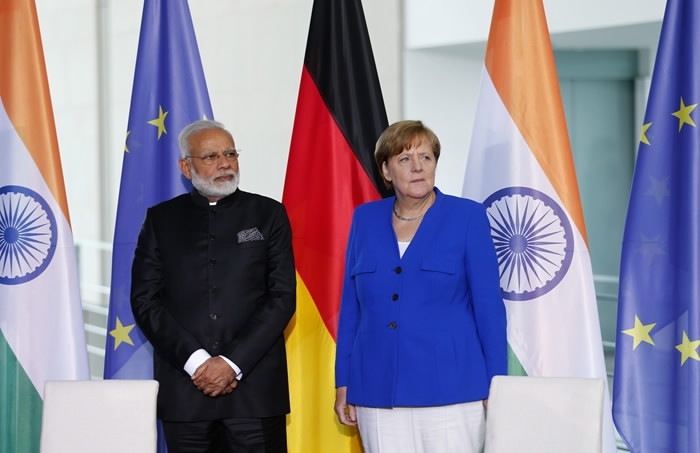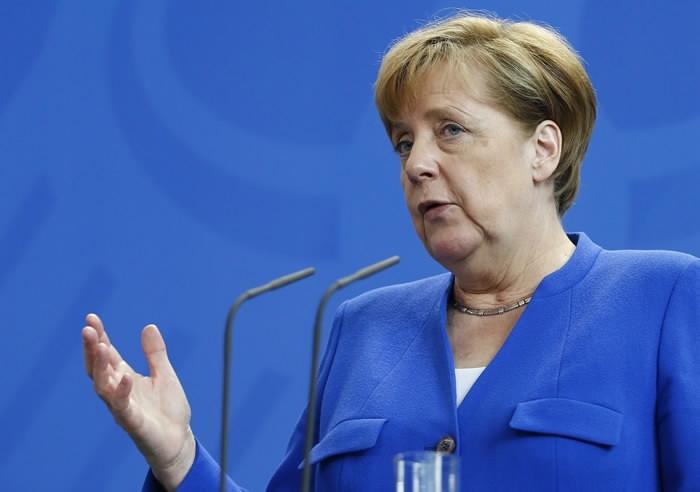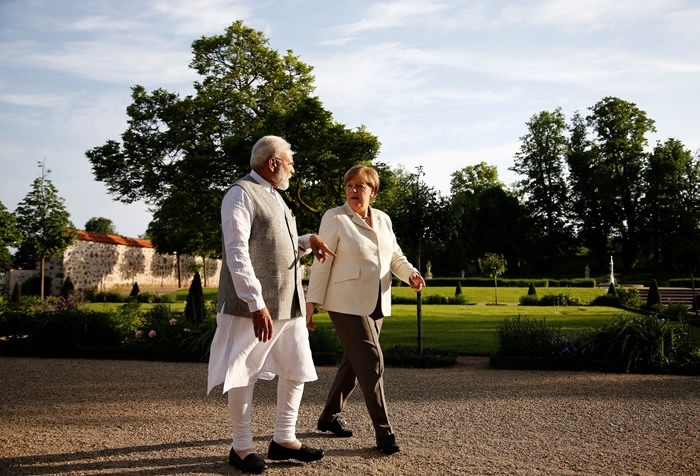German Chancellor Angela Merkel said her country's developing cooperation with India is "in no way directed against any other relationships," after meeting with Indian Prime Minister Narendra Modi in Berlin on Tuesday.
Modi's visit to Germany came at a time when Merkel, described by some as a "convinced trans-Atlanticist," prompted talks of an "eastern pivot" as she questioned the reliability of the United States on Sunday, following US President Donald Trump's refusal to uphold the 2015 Paris Agreement on tackling climate change at the G7 Summit last week.
An upcoming Berlin visit by Chinese Premier Li Keqiang on Wednesday will provide further evidence of Germany's "eastern pivot," a Reuters report said.

German Chancellor Angela Merkel (R) and Indian Prime Minister Narendra Modi attend a signing ceremony at the fourth round of German-Indian government consultation in Berlin, Germany on May 30, 2017. /Reuters Photo
But Merkel said Germany-India ties were not against any other party, and reaffirmed the importance of her country's traditional friendship with the US.
"We began our German-Indian government consultations a few years ago, as we have for Germany-China consultations," she said, adding that Berlin's partnership with New Delhi "in a globalized world" was "in no way directed against any other relationships and certainly not against the trans-Atlantic ties, which are of paramount importance."
Nevertheless, the German chancellor stressed that Europe must take its destiny into its own hands, and play a more active role on the global stage.
"Transatlantic ties are of paramount importance to us... but the current situation gives more reasons for us to take our destiny in our own hands," she said. "Europe must become a player active in international affairs."

German Chancellor Angela Merkel speaks during a joint news conference with Indian Prime Minister Narendra Modi in Berlin, Germany on May 30, 2017. /Reuters Photo
Modi called Germany "a very reliable partner," and confirmed that India would stay in the Paris Agreement even if the US pulled out.
India and Germany will deepen cooperation on clean energy, he said.

Indian Prime Minister Narendra Modi (L) talks to German Chancellor Angela Merkel during their meeting at the Meseberg Palace in Meseberg, Germany on May 29, 2017. /Reuters Photo
Germany is India's largest trading partner in the European Union and a top source of foreign direct investment. But their trade volume of 19 billion US dollars is modest compared to the 160 billion US dollar trade volume between China and Germany last year.
China has remained Germany's largest foreign direct investor for three consecutive years, with the two sides seeking to link their respective development strategies, namely "Made in China 2025" and "Industry 4.0."
Related stories:
Merkel says Europe cannot count on United States
G7 leaders agree on fighting protectionism, disagree on climate change










